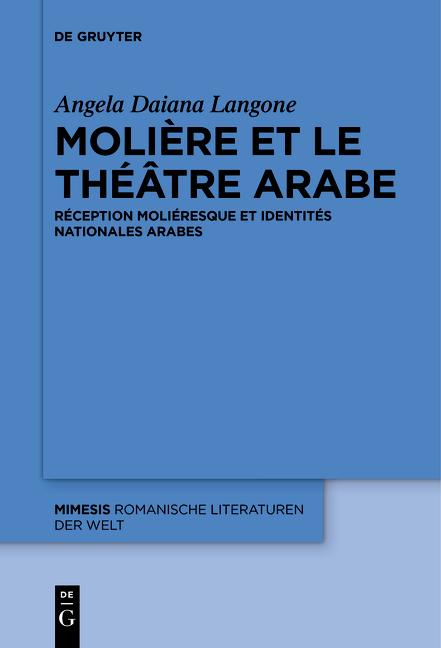
Molière et le théâtre arabe
Réception moliéresque et identités nationales arabes
Seiten
| Ausstattung: Hardcover & eBook
2016
de Gruyter Mouton
978-3-11-043685-3 (ISBN)
de Gruyter Mouton
978-3-11-043685-3 (ISBN)
- Titel leider nicht mehr lieferbar
- Artikel merken
Molière, often considered the ‘godfather of Arab theatre’, was first introduced to the Arab world in 1847 by Marun Naqqaš and his adaptation of The Miser. Since then, Molière has never ceased to influence Arab dramaturgy. Discussing a series of plays by authors from Lebanon, Egypt, Tunisia and Morocco, this study aims at defining Molière’s role in the development of a national Arab theatre. Considéré souvent comme le «parrain du théâtre arabe», Molière arrive dans le monde arabe grâce à une adaptation de L’Avare par le libanais Marun Naqqaš (1847): à partir de ce moment, la dramaturgie arabe ne cessera plus de puiser à son répertoire. À travers un corpus de pièces provenant du Liban, de l’Egypte, de la Tunisie et du Maroc, ce travail entend définir la place de Molière dans la genèse d’un théâtre national arabe.
Angela Daiana Langone, Università degli Studi di Cagliari, Italy.
| Reihe/Serie | mimesis ; 62 |
|---|---|
| Zusatzinfo | Includes a print version and an ebook |
| Verlagsort | Berlin |
| Sprache | französisch |
| Maße | 155 x 230 mm |
| Themenwelt | Geisteswissenschaften ► Sprach- / Literaturwissenschaft ► Romanistik |
| Schlagworte | Arabische Gegenwartsliteratur • Comparative Literature • Komparatistik • Modern Arab Literature • Molière • Molière; Comparative Literature; Modern Arab Literature; Political Theatre • political theatre • Politisches Theater |
| ISBN-10 | 3-11-043685-X / 311043685X |
| ISBN-13 | 978-3-11-043685-3 / 9783110436853 |
| Zustand | Neuware |
| Haben Sie eine Frage zum Produkt? |